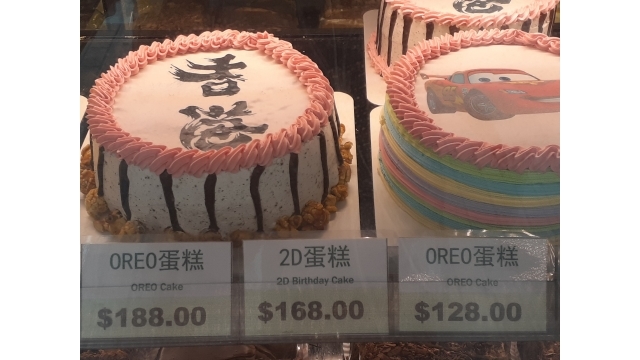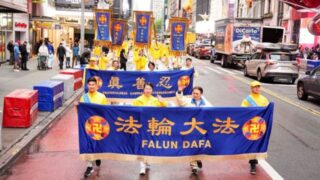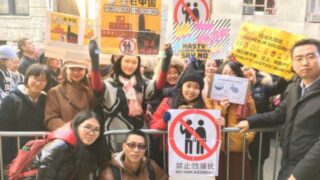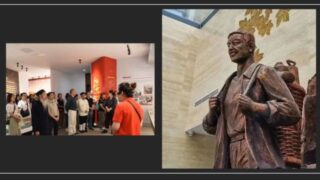Actress Mei Mac performed Juliet in a “Romeo and Juliet” scene and was interviewed displaying the banned slogan “Come On Hong Kong” on her sleeves.
by Gladys Kwok


There is no peace for Romeo and Juliet. This time, the villain messing with their love is the Chinese Communist Party.
Nationalist netizens, some of them with official positions in the Hong Kong government, are demanding that award-winning actress Mei Mac should be sanctioned by the Chinese authorities after her performance as Juliet at King Charles III’s Coronation Concert in Windsor Castle. King Charles is a Shakespeare fan, and Mac performed excerpts from “Romeo and Juliet” together with Rwandan-Scottish actor Ncuti Gatwa, who played Romeo and stars in the BBC TV series “Doctor Who.”
Mac, whose parents are Chinese although she is a British citizen born in Birmingham, was interviewed before the performance. Visible on the sleeves of her red coat, embroidered in black, were the words “Come On Hong Kong” in Chinese characters. The words literally mean “Hong Kong Add Oil,” which is a Cantonese slang expression meaning “Go Hong Kong” and is normally used by supporters of Hong Kong sport teams. The four-character slogan 香港加油 is also reproduced in two characters (see cake in the image) that, when read subsequently horizontally and vertically, form the slogan. This is the version that appeared on Mac’s coat.


The seemingly inoffensive slogan is banned in Hong Kong as it was used by pro-democracy protesters. In 2021, the Standard Chartered Hong Kong Marathon was the first mass public sport event allowed after the COVID-19 suspension of all sport activities. Several runners came with the slogan on their shirts, and were prevented from competing. Others, anticipating problems, had tattooed the slogan on their skin, but were compelled to cover it with tape. The authorities warned that the use of the slogan violated the National Security Law and may lead to immediate arrest.
Later sport events such as the Cyclothon and the New World Harbour Race also banned the use of the “Come On Hong Kong” slogan.
In July 22, the immensely popular Hong Kong singer Jacky Cheung said “Come On Hong Kong” in an interview with the state-owned China Central Television. The interview was deleted, and Cheung had to release a long statement explaining he used the words without political motivations.
As for Mei Mac, she is a British citizen but she is not totally safe. Article 38 of Hong Kong National Security Law allows Chinese authorities to take appropriate action against all those who violate the law, even if they are not Chinese citizens and do it abroad.









